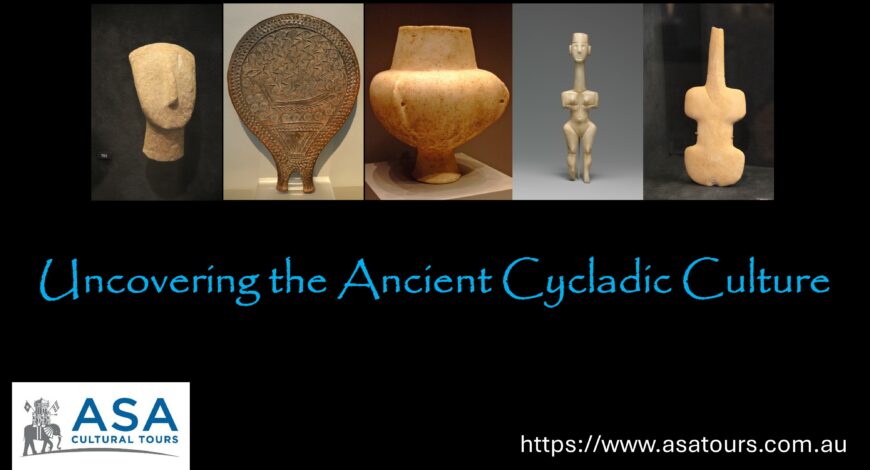Uncovering the Ancient Cycladic Culture: Part I and Part II
A fascinating and mysterious culture developed during the Late Neolithic and Early Bronze Age periods on the Cyclades islands in the central Aegean Sea, known today only as the Cycladic Culture.

Uncovering the Ancient Cycladic Culture: Part I and Part II
presented by Dr Christopher A. Tuttle
Part I. Early Cycladic periods (3100-2300 BCE)
A fascinating and mysterious culture developed during the Late Neolithic and Early Bronze Age periods on the Cyclades islands in the central Aegean Sea. Known today only as the Cycladic Culture, these people became skilled artisans, shipwrights, and traders who deftly used the natural resources of their islands to thrive and develop one of the earliest complex societies in the region. In this lecture, we will focus on the origins and early developmental period of the Cycladic Culture through various lenses, such as their geographical context, social practices, and artefacts.
Part II:
Part II: Middle to Late Cycladic periods (2000—1000 BCE)
This second lecture will discuss the evolution of the Cycladic Culture that had taken place during the first 1,000 years after their origins. We will explore the next 1,000 years of Cycladic Culture expansionism and the effects that contact with other regional cultures appear to have had on them. Finally, we will delve into the question of their ultimate fate as a distinct socio-cultural entity.
Dr Christopher A. Tuttle is an archaeologist studying the Hellenistic and Roman periods in the Eastern Mediterranean. Former Associate Director at ACOR in Jordan and former Executive Director of the Council of American Overseas Research Centers. He holds a BA in Classical and Medieval Studies from the University of Massachusetts, Boston, and a PhD from the Joukowsky Institute for Archaeology and the Ancient World at Brown University. He recently joined ASA as Academic and Outreach Coordinator.
